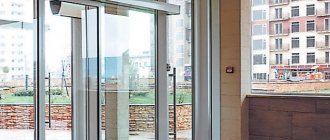Everyone goes through a difficult period in their life, for example, when their neighbors begin renovations. Of course, they want to stand out by doing something unique with their home. But each individual apartment is part of the house. Therefore, any design ideas must comply with building codes and regulations. As soon as redevelopment begins and neighbors break down walls, you should worry about its legality.
Neighbors tearing down walls? Where to complain and what to do. It is important to contact all organizations with a written application. You must ask for an acceptance mark on the second copy. It must indicate who accepted and when.
Legislation
- The Code of the Russian Federation on Administrative Offenses No. 195-FZ of December 30, 2001, in Article 7.21, establishes fines for illegal changes to the layout of an apartment.
- The Housing Code of the Russian Federation No. 188-FZ dated December 29, 2004, in articles 29, 26, 25, speaks of permissible alterations and provides for liability for them.
- Decree of the State Construction Committee of the Russian Federation dated September 27, 2003 No. 170 lists the rules for the technical operation of residential buildings.
- Building regulations 54.13330.2011 prohibit rearranging rooms, kitchens, and bathrooms.
- SanPiN 2.1.2.2645-10 requires not changing the openings of bathrooms, not combining adjacent rooms, and determines the permissible room sizes and lighting conditions.
- Technical regulations for fire safety No. 122-FZ dated July 22, 2008 prohibit the removal of gas equipment and the installation of open hearths and wood-heated fireplaces in apartments.
What not to do
The law prohibits any actions that could lead to a deterioration in the quality of housing of neighbors. For example: cracks appeared in the walls, dampness and mold appeared on the floor and ceiling.
The agreed redevelopment project includes not only permission to carry out work, but also stipulates:
Dear readers! To solve your problem right now, get a free consultation
— contact the lawyer on duty in the online chat on the right or call: +7 (499) 938 6124 — Moscow and region.
+7 (812) 425 6761 — St. Petersburg and region. 8 (800) 350 8362 - Other regions of the Russian Federation You will not need to waste your time and nerves
- an experienced lawyer will solve all your problems!
- the time of their implementation;
- procedure for removing construction waste;
- describes materials that can be used.
Important: the consequences of destruction caused by redevelopment will be paid by the owner of the premises.
In the apartment
Some types of apartment renovation may be permitted by regulatory authorities after completion. However, there are changes that will not be considered legal:
- Conversion of housing into shops, offices, warehouses, saunas - in this case, a preliminary assessment of the condition of the building and its systems is required. It is done by organizations - the authors of the house project. Most often these are research institutes.
- Destruction of walls that provide strength and stability of the structure, including additional entrances and exits, window extensions.
- Removal of ventilation ducts and shafts.
- Placing equipment whose weight increases the load on the floor, water supply, and power supply. For example, installing industrial washing machines, replacing gas stoves with electric ones.
- Moving the heating system to the balcony.
- Use for heating floors of central water supply.
- Violations of sanitary, fire, and construction regulations.
- Combining the kitchen and rooms if a gas stove is installed. In this case, a partition between them is required.
- Placement of electrical wiring in the joints of the building.
- Swap kitchens, bathrooms and rooms.
- Make openings and niches in the walls of neighboring apartments, if they are not intended to be combined.
Also, you cannot enter the toilet through the kitchen or room. Such a change is allowed if a wheelchair user lives in the apartment. Residents of the first and last floors can occupy part of the attic and basement, but only if all the neighbors do not object. It is allowed to make a larger bathroom at the expense of a corridor or storage room, provided that high-quality waterproofing is carried out.
Relocating doors inside the apartment and erecting walls should not create additional load on the floor; it is permissible to approve them after the work is completed.
In non-residential premises
Redevelopment of non-residential premises of an apartment building requires mandatory permission from regulatory authorities. The main evaluation criterion is the safety of residents. Prohibited:
- Equipping entrances from the street through widened window openings.
- Actions that destroy the foundation.
- Placement of saunas and swimming pools in residential buildings.
- Reducing the distance between external and internal entrance doors.
- Restricting access to taps, valves, pipes that allow you to shut off water and gas during emergencies.
If the changes do not pose a threat to residents, they are recognized as legal subject to the necessary conditions.
We are doing renovations and demolished a non-load-bearing wall, the neighbors are unhappy and want to force us to rebuild it.
5) consent in writing of all members of the tenant’s family (including temporarily absent family members of the tenant) occupying the rebuilt and (or) redesigned residential premises on the basis of a social tenancy agreement (if the applicant is authorized by the landlord to submit the documents provided for in this paragraph the tenant of the residential premises being rebuilt and (or) replanned under a social tenancy agreement);
6) the conclusion of the body for the protection of architectural, historical and cultural monuments on the admissibility of reconstruction and (or) redevelopment of a residential premises, if such a residential premises or the house in which it is located is an architectural, historical or cultural monument.
Responsibility
The person who carried out the redevelopment will be responsible for the redevelopment. In 2017, the Supreme Court decided that it was impossible to punish a homeowner who received an apartment with illegal changes.
For such violations, a fine of 2,500 rubles is provided for citizens and up to 1 million rubles for organizations. Paying it does not relieve you from the obligation to legalize the redevelopment or return the housing to its original form, in particular, to demolish the erected brick partitions and terraces.
If the owner of the premises refuses to comply with the requirements of the court or supervisory authorities, the apartment can be sold at auction, after which the owner can be evicted. The owner will receive part of its price. Work to eliminate violations will be paid from the cost of the sold property.
An exceptional penalty may be imprisonment of up to 12 years if the building collapses.
The owner of such an apartment will compensate for the damage caused by his actions to other residents. The decision on the seizure and sale of housing is made by the court.
How to file a claim?
The text of the application must contain the following information:
- Full name of the applicant, his address and contacts. If the complaint is collective, each signatory must provide information about himself.
- The address where the redevelopment was done.
- It is advisable to write down the details of the person carrying out the work illegally.
- Redevelopment dates.
- An urgent requirement to carry out an inspection due to the risk of damage to the building and its occupants.
- Signature with transcript, date of writing the complaint.
In what cases should you file a complaint?
It is difficult to detect the redevelopment of someone else's apartment. Questions arise when neighbors are faced with the consequences of repairs:
- long-term operation of construction tools - hammer drills, saws;
- a large amount of garbage;
- the appearance of cracks in the walls;
- sewer leaks;
- ventilation disturbance.
Projects of apartment buildings assume that neighbors share the same amount of water, gas, and electricity. Unauthorized connections and changes to systems may violate the rights of others.
Important : the owner of the apartment being renovated is responsible for the removal of construction waste.
They're tearing down the walls
Demolition of walls between rooms can lead to various consequences, for example, deflection of interfloor ceilings. Sanitary standards for the area of rooms and bathrooms are provided. Increasing the size of rooms and additional openings in load-bearing walls can affect the stability of the entire building and lead to its destruction. It is prohibited to demolish them.
The ventilation was blocked
Ventilation shafts run from the first to the last floor; they allow the air in the rooms to be renewed. Any changes to their design can lead to gas accumulation in apartments and the appearance of dampness. Such violations can be proven after inspection of neighboring housing by specialists from supervisory agencies.
Moved the kitchen to another room
Such redevelopment can cause problems associated with water and sewage leaks. If, after renovations carried out by neighbors, dampness appears in the rooms and this is not due to natural causes, you should find out whether one of the residents has had their kitchen or bathroom moved.
Sewage problems
Sewer risers are located throughout the house. Their movement may impair system performance for other residents. It is possible to detect illegal repairs carried out by neighbors if regular blockages occur and waste flow worsens.
Where to complain if neighbors do illegal redevelopment
In this case, the management company and homeowners association will help. Internal changes to the apartment must not violate the rights of other residents. It will not be possible to enter your neighbor’s apartment without his consent; only the court can give permission for such actions.
To the management company
The organization’s specialists can visit apartments during scheduled events: when checking water meters, electricity, gas equipment. A neighbor's complaint will serve as a basis for checking the apartment, but will not allow entry without the owner's permission.
District Administration
Self-government bodies must be notified about illegal redevelopment of an apartment. If the housing space being repaired belongs to the municipality, then the owner, i.e., the administration, will automatically take care of this matter. She is obliged to contact the supervisory and judicial authorities herself.
If the apartment belongs to the tenant, then upon receiving the complaint, the administration will check whether he has permission for redevelopment work; such permission is issued by the municipality. They will also clarify the availability of a technical design for the work being carried out.
To the housing inspection
The inspector will check the application. If he fails to get into the home twice, the information will be submitted to the court. The latter's decision will oblige the owner of the premises to prove the legality of the change in layout. It will not be possible to avoid a fine in this situation.
To the prosecutor's office
Prosecutor's office employees work with people's requests, identifying and eliminating violations of the law. Upon receipt of a complaint about unauthorized redevelopment, an inspection is organized. The prosecutor can go to court to protect the residents of the entire house, and can demand the eviction of the offender.
To court
Judges consider claims. In case of damage caused by changes in a neighbor's apartment, you should contact the district court. The claim is filed at the place of residence of the defendant. In this case, it is necessary to prove the connection between the work performed and the consequences that arose.
You can complain to several departments at the same time. Where exactly to write the application is up to the person to decide.
Important: court decisions can only be appealed to higher authorities; other departments cannot overturn a court decision.
On guard of repairs: who and how is fighting unauthorized redevelopment
Sometimes the owner does not live at this address or is abroad, but often he simply deliberately avoids verification. For example, he does not confirm receipt of the notification, does not provide access to the premises, or is absent during the inspection so that inspectors cannot legally draw up a report.
First of all, it should be noted that only owners can carry out redevelopment themselves. If you occupy residential premises under a social tenancy agreement, then first you need to apply for permission from the landlord and obtain the written consent of all family members. Moreover, the tenant is unlikely to be allowed to reduce the living space, since it is not profitable for the city to lose living space in its apartments.
Sample complaint
Complaints are written in free form and must include:
- addressee's name;
- information about the person applying - his last name, first name, patronymic, address, phone number, email;
- description of the problem;
- demands and suggestions for a way out of the situation;
- Date of preparation;
- providing evidence.
To contact the Criminal Code, you need to describe in detail the inconvenience caused by your neighbors. This includes:
- noise from operating equipment for several days in a row;
- bags of construction waste in the entrance;
- dust and dirt on staircases;
- appeared cracks;
- drips on the walls.
Other residents can confirm the actions of neighbors, photographs of the entrance, damp spots, fragments of bricks, concrete.
Appeals are submitted to the State Housing Inspectorate in the same manner. They can be sent via the Internet. The same documents can be cited as evidence. It is possible to attach an expert opinion on the identified damage.
An application to the prosecutor's office is submitted to the district prosecutor. You can complain both about the actions of residents and about the inaction of other departments. In the latter case, they refer to the responses of the housing inspectorate and the service organization.
The courts work with claims. They are submitted by citizens and organizations. The plaintiff will have to prove the case. In this case, careful preparation is necessary: assessment reports, expert opinions on the causes of identified deficiencies and the possibility of eliminating them will be required. Copies of claims in the Criminal Code and responses to them are required. The text must contain references to legislation. A sample application can be found on stands in court buildings and on official websites.
The free form of appeals presupposes a correct and detailed description of the situation that has arisen, without the use of rude, harsh statements, insults to other people, false information, or speculation. You need to approach writing responsibly. It must be literate and consistent so that the meaning of the message is not lost. The document is signed by the applicant or his representative.
Algorithm of actions when neighbors break through your walls during repairs
Suppose (as happened recently to a Moscow family)
you were on vacation and absent for several days. You return from a trip and find your apartment, beds, books and other things covered in construction dust, the walls and ceiling of the living room are covered with cracks, pieces of concrete and sand are flying out of them, the wallpaper has also come off. You can clearly hear people talking in the apartment next to you, the sounds of a vacuum cleaner are heard right above your ear. Upon further inspection, it turns out that a piece of the wall the size of a football was knocked out and put back on the inter-apartment wall, the cracks around it were hastily sealed with polyurethane foam and other delights. You are standing in a complete stupor, when suddenly jackhammers begin to work merrily behind the wall...
Next, you will have to call the management company and the control room almost every day so that they can send a technician-supervisor and the site manager to draw up a report. The site manager is a busy man. He is exhausted by constant meetings at the council and other life difficulties. Therefore, his appearance in your apartment for inspection and drawing up a report may take at least a month (since your application can legally be considered for at least a month, maybe more, as the secretary of the Criminal Code explained to me)
and depends solely on your persistence!
Interesting: Procedure for filling out 3 Personal Income Tax Tax Deduction for Apartment 2nd Year
Submission process
You can submit a claim in person, by letter or by email.
When applying in person, you should take a copy of the application with you; it will be marked as having been received.
Complaints to the management company or housing inspection are accepted by secretaries or dispatchers.
Applications to the prosecutor's office are transferred to the officer on duty at a personal reception. These could be assistants, deputies, or a district prosecutor.
Claims are transferred to the court office. You should have copies of the statement of claim and supporting documents with you. The originals remain in court, and copies are sent to the defendant in preparation for trial.
Sending documents via the Internet is allowed. Registration on the State Services portal will be required for the court and civil housing estate. The quality of the documents provided is important; they must open on the computers of department employees and be readable.
Management companies and prosecutors accept written requests sent by email.
It is important to provide reliable information about the applicant, otherwise you will not be able to receive a response.
All named organizations accept letters. They should be sent with return receipt requested. This will allow you to control the response.
Is it possible to write anonymously
There will be no unequivocal refusal to consider applications submitted anonymously. In this situation, the result of the check is not communicated to anyone. Heads of housing inspections must take measures to identify the sender. Inspections of companies' activities do not begin on the basis of anonymous reports, but violations of laws are identified in other ways.
Information about crimes being prepared, committed, and situations dangerous to the population is clearly checked.
What to do if services do not respond
If supervisory agencies are inactive, you need to contact higher authorities. Copies of all requests and responses to them should be kept. This rule applies to all departments, organizations, and courts.
Utility services are supervised by housing inspectorates, administrations, and Rospotrebnadzor. Housing Housing Inspectors are controlled by the Chief Housing Inspector. The prosecutor's office checks for any violations of people's rights. District prosecutors report to city, regional, and federal officials. The courts also have supervisory authorities - regional, regional, republican, and the Supreme Court of the Russian Federation.









